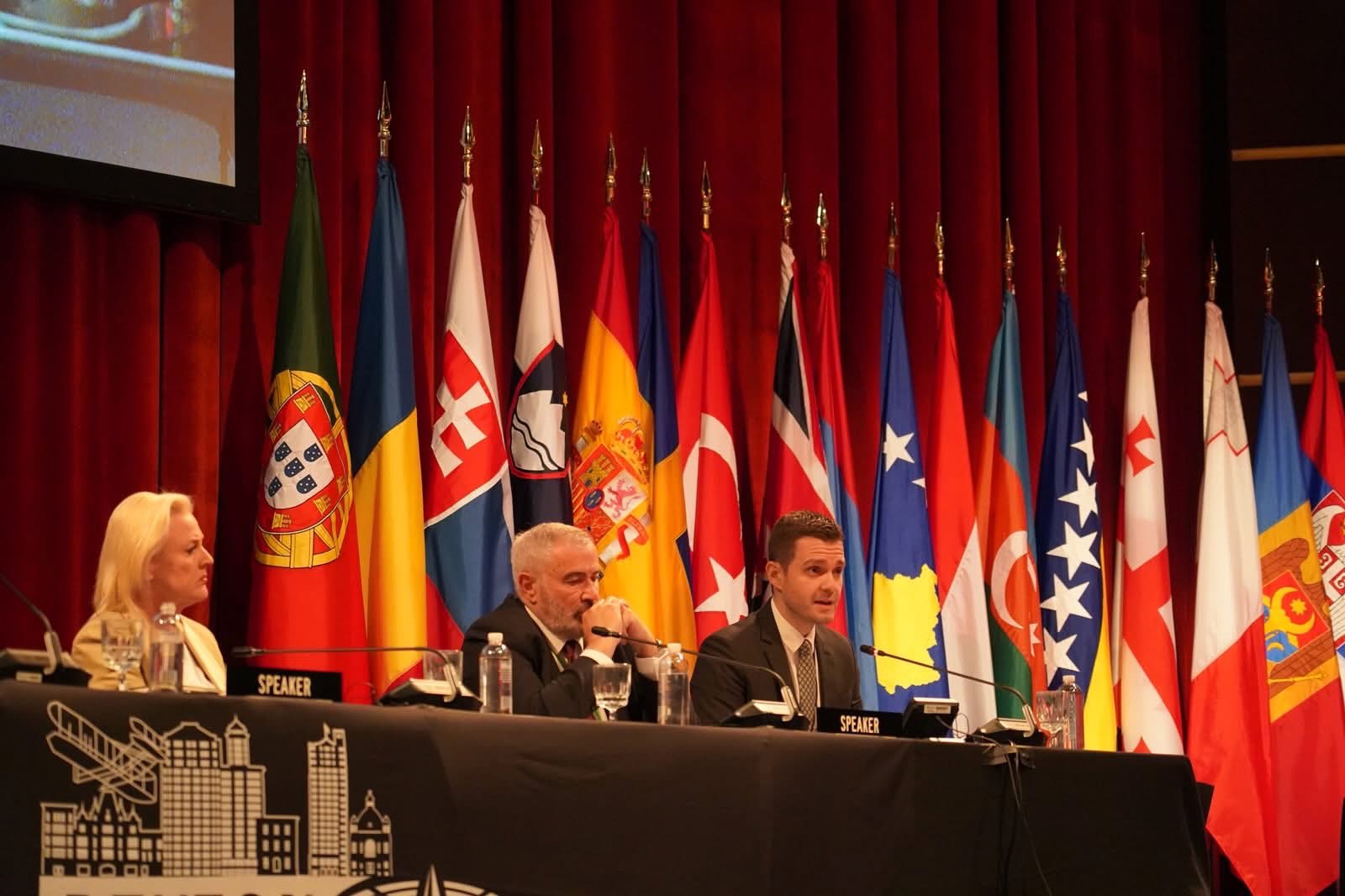Western Balkan leaders voiced starkly differing views on the region’s future but jointly called for preserving peace and stability as they gathered in Dayton, Ohio, to mark the 30th anniversary of the Dayton Peace Agreement.
The event, which coincided with the NATO Parliamentary Assembly’s spring session, commemorated the 1995 accord that ended the war in Bosnia, widely regarded as Europe’s bloodiest conflict since World War II.
“Dayton was a compromise that saved thousands of lives. Now we face a new challenge – how to preserve peace, but also to upgrade the agreement in the spirit of the 21st century,” Montenegrin President Jakov Milatović told a panel.
Milatović stressed that the region’s current leadership must draw on the painful lessons of the past to resolve open issues through dialogue and democratic means. “We must reaffirm the enduring importance of the Dayton Peace Agreement, not only as a foundation for peace in Bosnia and Herzegovina, but as a milestone for broader regional stability,” he said.
Highlighting the role of NATO, Milatović called the alliance a guarantor of peace and stability and said the region stands at a historic crossroads with a chance to join the “club of progressive democracies” in the European Union.
Croatian Prime Minister Andrej Plenković said Dayton had not resolved all challenges but had opened the door to a better future. “Croatia was the first ally of Bosnia and Herzegovina on its path to independence,” he said. He recalled Croatia’s role, along with the United States and Turkey, in brokering the 1994 Washington Agreement that laid groundwork for the end of the Bosnian war.
North Macedonia’s Foreign Minister, Timcho Mucunski, underscored the agreement’s enduring significance for regional stability and praised the United States for its role in brokering peace.
“Three decades later, the legacy of the Dayton Agreement reminds us that diplomacy, backed by unity and determination, can stop bullets and rebuild lives,” Mucunski said. “Peace is not a destination – it is a discipline. A responsibility that must be constantly nurtured and renewed.”
During the session, Serbian representatives proposed an amendment aimed at dismissing allegations against politicians from Republika Srpska. The amendment was rejected by vote.
Parliamentary representatives of NATO member states adopted a document on the situation in Bosnia and Herzegovina and outlined conclusions to be discussed at the upcoming NATO summit.



